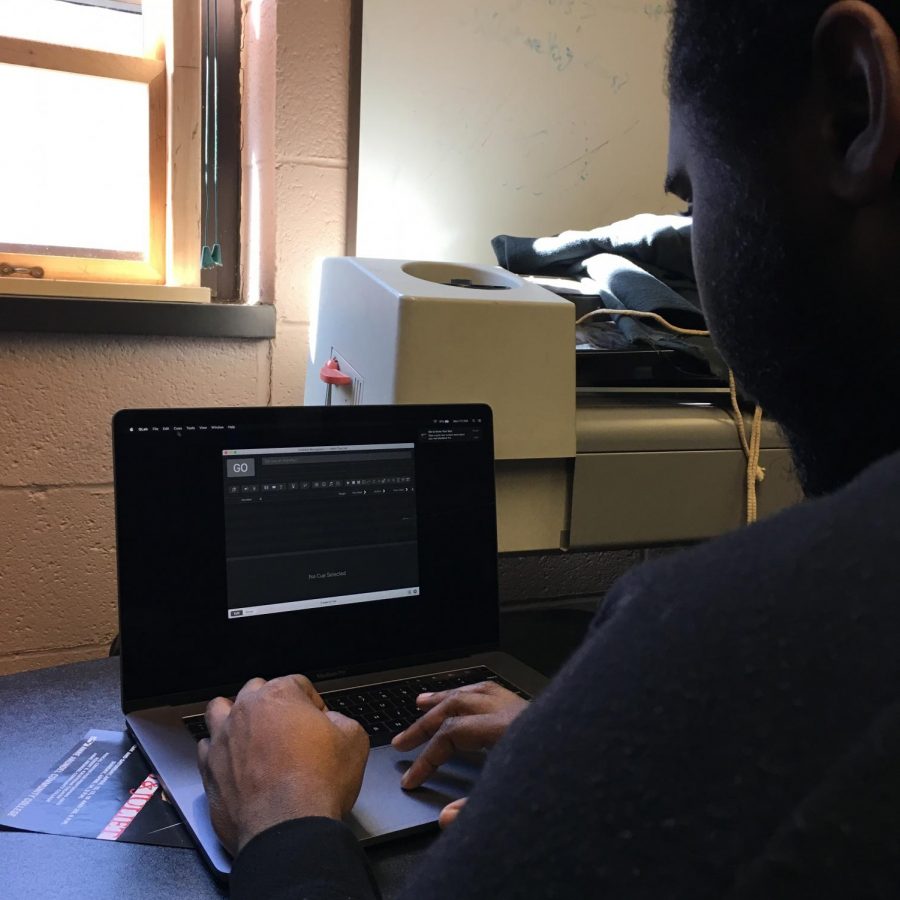Game Development Student Designs Virtual Sets for R&J
Shawn Smith, a returning game development student, using computer design to help production for Romeo and Juliet.
March 5, 2019
In Shakespeare’s “Othello,” the villainous Iago derides Cassio as a “great arithmetician” who “never set a squadron in a field.”
This insult dismisses one who “computes” in favor of one who “acts,” but today programmers and performers work hand-in-hand.
Shawn Smith, a returning game development student, uses QLab to create set designs that are projected onto screens or objects on the stage.
According to the product’s website, “QLab makes it simple to create intricate designs of light, sound and video.”
This is one of the first times the theater has used QLab, and sought out game dev students.
“An example is if the director wants to go from a grassy field to a desert,” Smith explained. “[QLab] could show the grass as it withers and dies.”
Smith said designing video games is much similar to creating sets.
“In high school I liked designing characters in video games,” he said.
Smith said one challenge while working was learning how to use the software on a Mac, because he typically a PC.
Theater professor Sean Urbantke addresses this by making preloaded MacBooks available for student designers.
“We treat them like creative professionals,” he said, pointing out the computer designers collaborate with the theater management team like they would in the “real world.”
“We don’t know much about coding or scriptwriting — that’s to say not theater scripts, but computer scripts, or whatever they’re called,” he said.
Sarah Valerian, a returning transfer studies student and the stage manager for “Romeo and Juliet,” said it was important for the actors to trust the production crew.
She said that while some actors learn how to work on the crew as well, computer design is a specialized skill that Smith was brought in to perform.
Urbantke said the student designer has an equal voice with the other members of the creative team when helping the director achieve her vision with the performance.
Computer design programs like QLab also assist Urbantke with other aspects of production management, including making sure the performance runs smoothly.
“We run the program on two computers during a show for redundancy,” he said. “In case one crashes.”
The result is so immersive that the audience easily suspends their belief in what is “real” during the performance.
Urbantke said he is always accepting more game development students, or students in similar fields, to help with the shows.












